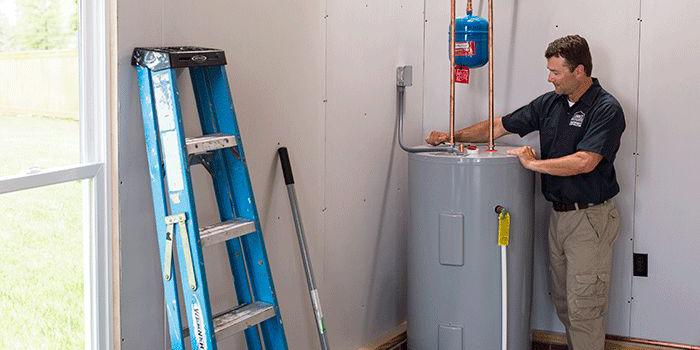Is It Time for a Water Heater Replacement? Here’s What You Need to Know

Water heaters are easy to forget—until they stop working. A cold shower or rising utility bills are often the first signs that your unit isn’t performing as it should. Water heater replacement is one of those home upgrades that might not seem urgent, but waiting too long can lead to bigger issues and expensive damage.
In this post, we’ll break down the signs that it's time for a new water heater, the replacement process, and how hiring professionals in Alexandria VA ensures a seamless, long-lasting solution. Whether you're dealing with inconsistent hot water or rising energy bills, understanding when to upgrade your system can save you time, money, and stress in the long run.
Signs You Need a New Water Heater
Age is one of the biggest indicators. Most traditional water heaters last 8–12 years. If yours is older than that, it may be operating at reduced efficiency—or worse, nearing a failure. But age isn’t the only factor.
Look out for these warning signs:
-
Rusty or discolored water
-
Frequent leaks or pooling around the unit
-
Strange noises (like popping or rumbling)
-
Fluctuating water temperature
-
Increased energy bills
These symptoms usually mean your unit is deteriorating on the inside, even if it still delivers hot water for now.
Why Water Heater Replacement Is Worth It
Replacing an old water heater isn’t just about restoring hot water. Newer models are much more energy-efficient. That means you’ll save money in the long run while enjoying better performance.
Modern units heat water faster, maintain temperature more consistently, and take up less space—especially if you opt for a tankless system. And depending on your state, you might even qualify for rebates or tax incentives for upgrading to an energy-efficient model.
What the Replacement Process Looks Like
When you hire professionals, the first step is a full assessment. The team will inspect your current unit, plumbing setup, and overall household needs. Based on this, they’ll recommend the right size and type of water heater—whether it’s tank, tankless, electric, or gas.
Here’s how the process typically goes:
-
Shutoff and drain the old unit
-
Disconnect the plumbing and power source
-
Remove the old heater and prep the area
-
Install the new unit and secure all connections
-
Test for proper operation and safety
Everything is done to code, and disposal of the old water heater is usually included in the service.
Common Questions About Replacing Your Water Heater
Homeowners often wonder whether it’s better to repair or replace. The rule of thumb? If repairs cost more than 50% of a new unit, it’s smarter to replace it.
Another concern is timing. You don’t want to wait until the heater fails completely. Proactive replacement is always more cost-effective than emergency repairs and water damage remediation.
If you’re thinking about upgrading to a tankless system, ask your installer about the specific pros and cons. While tankless heaters are efficient and space-saving, they may require more upfront investment and electrical upgrades.
Why You Should Hire a Certified Pro
Water heater replacement involves plumbing, gas, and electrical components—so it’s not a DIY job. Professionals ensure all connections are secure, safe, and up to code. More importantly, a licensed technician will help you select the best unit for your home and install it in a way that maximizes its efficiency and lifespan.
Plus, hiring an expert means your warranty remains valid. Most manufacturers require professional installation for coverage.
Conclusion
When your water heater shows signs of aging or inefficiency, don’t wait for a complete breakdown. Replacing your unit with the help of certified professionals ensures a smooth experience, improved energy efficiency, and peace of mind. Whether you're upgrading to a tankless model or simply replacing an old tank, a new water heater can be one of the smartest investments in your home’s comfort and functionality.
FAQs
Q1: How long does a water heater replacement take?
Most replacements take 2–4 hours depending on the complexity and type of unit.
Q2: Is it better to replace a water heater before it fails?
Yes. Replacing proactively prevents emergency damage and gives you time to choose the best model.
Q3: How do I know what size water heater I need?
Your installer will assess your household’s size and hot water usage to recommend the right capacity.
Q4: Are tankless water heaters worth it?
They are more energy-efficient and last longer but can cost more upfront. Ideal for long-term savings.
Q5: Can I replace a water heater myself?
It’s not recommended due to plumbing, gas, and electrical risks. Always hire a licensed professional.
- Art
- Causes
- Crafts
- Dance
- Drinks
- Film
- Fitness
- Food
- Games
- Gardening
- Health
- Home
- Literature
- Music
- Networking
- Other
- Party
- Religion
- Shopping
- Sports
- Theater
- Wellness


